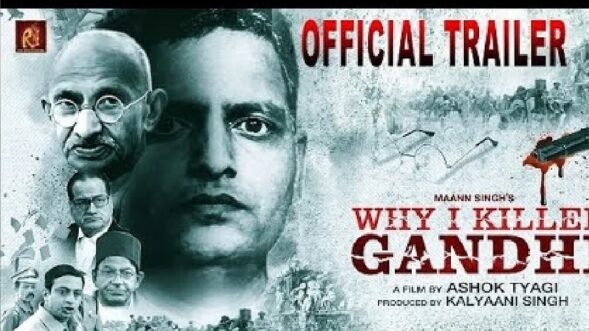
By Eleanor Mikkimchi Sangma | TURA
For more than 50 years, Hindi cinema has ruled the roost, taking the mantle of cinema that “represents” India, despite the presence of a rich heritage of films in many non-Hindi-speaking states. The farther a culture is from the “Indo-European”, the more likely it is left in obscurity. This places Garo films even more outside the edges of Indian cinema. Yet, the writers, actors and directors who are part of it, continue to trade in the art, writes Eleanor Mikkimchi Sangma.
Cinema has always been a form of escapism. After a tiring day of sometimes just existing, curling up in bed with a good film provides a kind of comfort only the world of fiction can bring. Anyone can get lost in Wong Kar Wai’s Hong Kong from the ‘60s, Wes Anderson’s picture-perfect colour palette or the whimsical animations of Hayao Miyazaki. That’s also where the problem lies.
One can explore the whole world through the screen, except for my own, that is, the world of the Garos. The Northeast has produced countless films and filmmakers that have made a mark for themselves in the cinematic world. Independent filmmakers such as Dominic Sangma have reached Cannes Film Festival with the stories he tells through his lenses. However, the Garo film industry, in general, has remained stagnant over the years, save for a couple of filmmakers who continue to make every effort to help it grow.
Industry veteran Simon George Marak, the brains behind the hit mini-series Parakjajok Maina, has become a household name in the Garo film industry over the past two decades. He entered the scene in the year 1997 when Marak Productions was the only production house in Garo Hills. “I worked with director Dipu Marak and producer Jingjang Marak and learnt a lot through their guidance”, he says.
Marak had been interested in films since he was in VII grade. In class one day, his teacher had asked the students what they wanted to be once they finished their education. Some of his friends had answered “doctor”, whilst others chose “engineering”, common professions students are inclined towards and often the only ones they have seen. “I said I wanted to be a Garo film actor, and the whole class started laughing at me”. He laughs now, recalling the event. Back then, there was no one who was making films in Garo Hills, so scepticism was to be expected.
“But whatever the case may have been back then, I can now say I have achieved my ambitions”, he says.
However, his road to success was not smooth sailing by any means. All those years ago, filmmakers had to face a number of issues. Marak mentions piracy of DVDs as one of the reasons why they could not achieve much success. “It didn’t go much beyond putting food on your table”.
Times have not changed much since then. Aspiring filmmakers still have to face difficulties even with new-age technology at their service.
Film industry in Garo Hills has failed to take off for several reasons. According to Marak, it is extremely hard to find trained Garo actors. “Film-making has never been a major source of livelihood for us, so no one is doing it on a professional level”.
Actors are often reluctant to go the extra mile to get a great shot. Marak says directors are not satisfied with just a couple of takes, but, in most cases, they have to work with unsatisfactory scenes. Filmmakers want their scenes to reflect the effort that has been put into the film in all aspects. However, that is not possible due to factors such as lack of trained actors and lack of technology and technical expertise that go into the entire film-making process. “If we had people who were actually into acting and looking to pursue it as a career, they would be successful”.
Garo Hills has also seen very few producers in the making. Filmmakers often have to do write, finance, cast and produce themselves. Lone wolves in the world of film production, sometimes a director might have to take up the roles of actor, scriptwriter, director and cameraman together. When the going is this tough for men, the space for women to succeed in roles outside of acting is even smaller. Marak also notes that a lack of market and cinema halls are also why the Garo film industry is still stuck in the nascent stage. With little infrastructure, there is no mature industry and only a handful of struggling aspirants and fewer veterans. Expressing his disappointment Marak says, “Take Khasi Hills for example; they are screening their own films in theatres.
But here, we don’t have a single theatre or cinema hall”.
However, there used to be a cinema hall in Tura, which now exists only in memories. It was not uncommon for young Garos to visit the cinema hall for late-night shows with friends and family. The Tura cinema hall was a place that saw frequent visits; viewers would come back late as the second screening would go on till midnight. Many young men and women lived the stereotypical teenage life in Tura, which ironically is not possible for contemporary teens.
Marak feels a cinema hall would run well in the region today. It could be a step towards helping the film industry gain some momentum.
He adds that having people who are willing to produce and invest money would be a major boost as well.
“Compared with Bollywood or even Shillong and Assam, we don’t really need to spend too much money on film production here”, says Marak.
However, despite the stagnancy in which Garo cinema lies, Marak still feels hopeful for the future of film industry in these parts of Meghalaya. “In my opinion, I think the industry will take off soon. The youth have been making tremendous efforts in production in recent years”.
With the correct guidance and sponsorship, says Marak, contemporary filmmakers could do well, because talent can only run for so long when it comes to grasping that elusive success on the silver screen, especially in a country where the contender, Bollywood, is one of the most well-funded and largest industries in the world of cinema.
Marak urges young talents who are interested to continue making films in the future and to do it with dedication. “All the hard work will pay off one day”, he says, alluding to his own success. “When you make an effort and it shows, you do earn that respect from people. You can’t survive on money alone; the most important thing is the respect and honour”. So one must keep making films and telling good stories.
Films speak of the culture and art and the way of life of the people they represent. The Garo film industry is not lost per se, since we never had the chance to fully establish it. We see so much of the world through cinema, yet we remain unseen by the world.
(The writer is a reporter with The Meghalayan)






